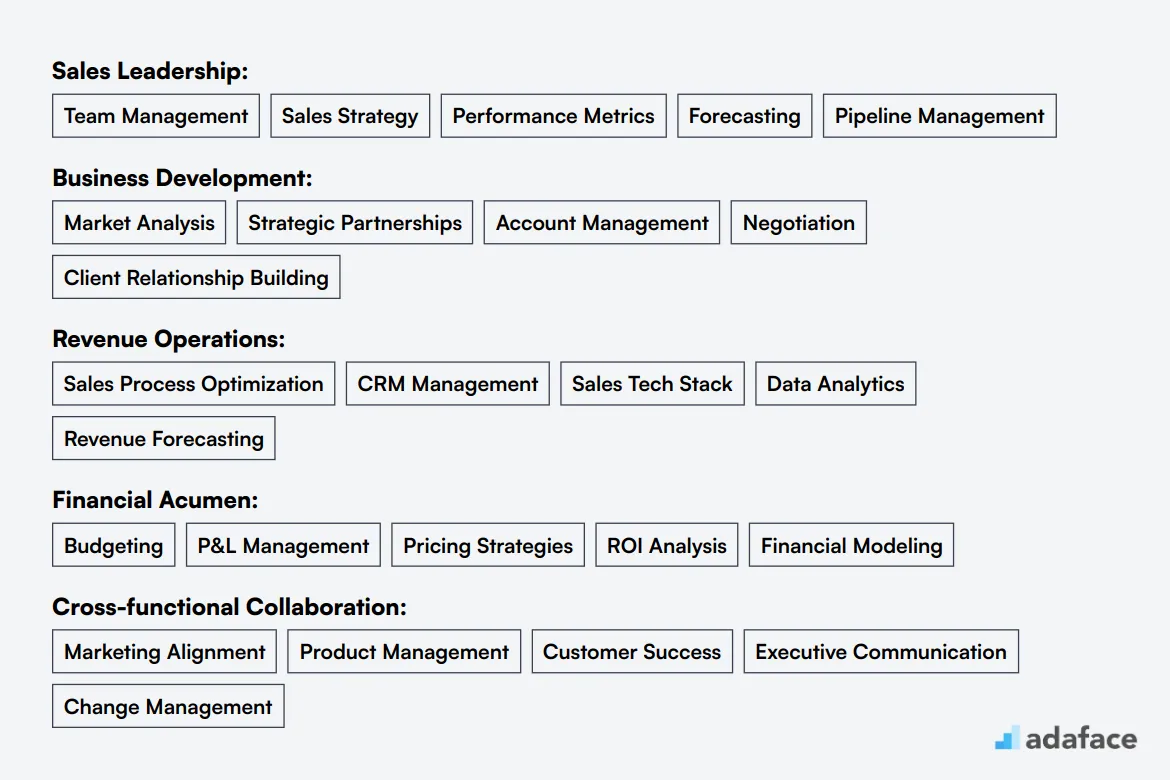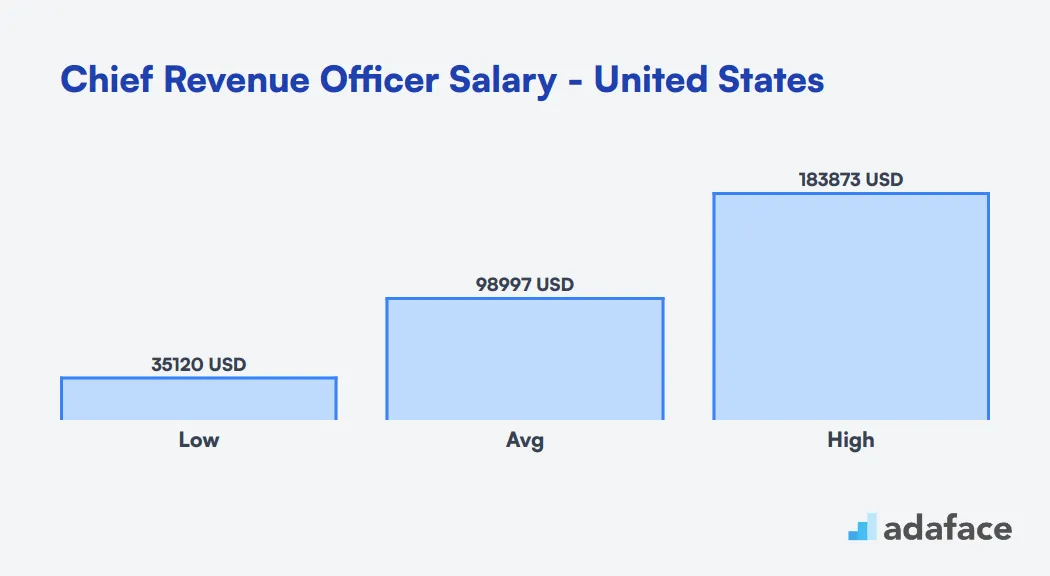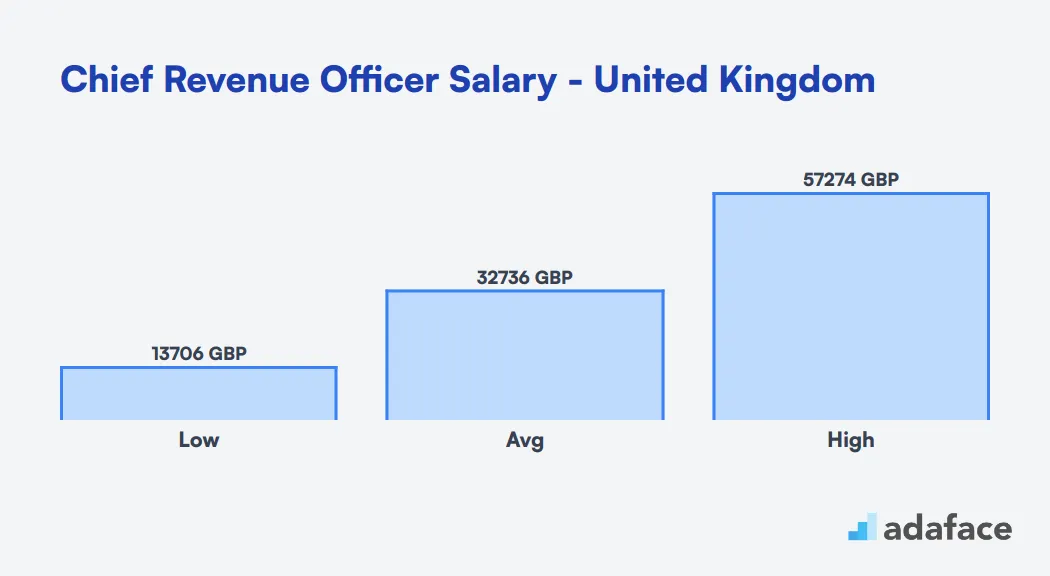Hiring a Chief Revenue Officer (CRO) is a critical decision that can make or break a company's revenue strategy. Many organizations underestimate the complexity of this role, often confusing it with a traditional sales leadership position. A CRO is responsible for aligning and optimizing all revenue-generating departments, including sales, marketing, and customer success. The right CRO can transform your revenue operations, but finding the perfect fit requires a deep understanding of your company's needs and the evolving landscape of revenue management.
This comprehensive guide will walk you through the process of hiring a top-tier Chief Revenue Officer. We'll cover everything from defining the role to structuring interviews and making the final decision. For a deeper dive into the specific skills required for a CRO, check out our detailed analysis of CRO competencies.
Table of contents
Chief Revenue Officer Hiring Process
Hiring a Chief Revenue Officer (CRO) is a strategic move for any company aiming to drive revenue growth and sales success. The process typically unfolds over 1-2 months, focusing on finding the right fit for your organization's goals.
- Craft a compelling job description: Start with a detailed Chief Revenue Officer job description and post it on various platforms to attract suitable candidates.
- Resume screening: Collect and review applications, and filter out candidates who meet the job criteria. This initial screening can take about a week.
- Skills assessments: Use targeted assessment tests to evaluate candidate capabilities, especially in revenue strategies and leadership.
- Conduct interviews: Interview shortlisted applicants to gauge their experience and cultural fit. This stage usually requires another week.
- Final selection and offer: After a thorough evaluation, make an offer to the candidate who aligns best with your company's vision.
To sum up, the hiring process for a CRO involves a mix of strategic planning and meticulous execution. Expect to commit 1-2 months to ensure you select the best candidate for this critical role. We'll now dive into each step with detailed checklists and resources to streamline your efforts.
Key skills and qualifications for a Chief Revenue Officer
Hiring a Chief Revenue Officer (CRO) requires a clear understanding of the role's demands. It's easy to focus solely on sales experience, but a CRO needs a broader skill set. Here's what to look for when building your ideal candidate profile:
Required skills and qualifications:
- Proven track record of driving B2B revenue growth
- 5+ years in senior sales or revenue leadership
- Strong grasp of sales methodologies and revenue operations
- Excellent leadership and team management abilities
- Strategic thinking for long-term revenue planning
Preferred skills and qualifications:
- MBA or advanced business degree
- Industry-specific experience
- Proficiency with CRM and sales analytics tools
- International business exposure
- Success in partnerships and strategic alliances
Beyond these, consider using skills assessment tools to evaluate candidates on key areas like sales leadership, business development, and revenue operations. This approach ensures a comprehensive evaluation of your CRO candidates.
| Required skills and qualifications | Preferred skills and qualifications |
|---|---|
| Proven track record of driving revenue growth in B2B environments | MBA or advanced degree in business-related field |
| 5+ years of experience in senior sales or revenue leadership roles | Experience in the company's specific industry or market |
| Strong understanding of sales methodologies and revenue operations | Proficiency with CRM systems and sales analytics tools |
| Excellent leadership and team management skills | International business experience |
| Strategic thinking and ability to develop long-term revenue strategies | Track record of successful partnerships and strategic alliances |
How to Write an Effective Chief Revenue Officer Job Description
Once you've identified the ideal candidate profile for your Chief Revenue Officer (CRO), the next step is crafting a compelling job description to attract top talent. Here are some key tips to create an impactful CRO job description:
• Highlight strategic responsibilities: Clearly outline the CRO's role in driving revenue growth, developing sales strategies, and aligning marketing, sales, and customer success teams.
• Balance leadership skills with industry expertise: Emphasize both the leadership qualities needed to inspire teams and the deep understanding of market trends and revenue models required for success.
• Showcase growth opportunities: Highlight the potential for the CRO to make a significant impact on the company's trajectory and any unique challenges or projects they'll tackle.
• Specify desired qualifications: Include relevant experience, such as years in senior sales roles, track record of revenue growth, and familiarity with your industry or business model.
10 platforms to hire Chief Revenue Officers
Now that you have your job description ready, it's time to list it on various job boards to attract qualified candidates for the Chief Revenue Officer position. Leveraging the right platforms can significantly expand your reach and increase the chances of finding the ideal candidate for your organization.
LinkedIn Jobs
Ideal for posting full-time CRO positions and reaching a wide network of professionals. Offers advanced search and filtering options for recruiters.

Indeed
Large job board with a diverse candidate pool. Suitable for posting various CRO roles and reaching a broad audience of job seekers.

Glassdoor for Employers
Combines job listings with company reviews. Useful for attracting candidates who value transparency and company culture in their job search.

Beyond the well-known options, there are several niche platforms worth exploring. Toptal is excellent for accessing top-tier freelance CROs for project-based roles. Y Combinator Jobs is ideal for startups looking for CROs who thrive in high-growth environments. SalesHeads focuses on sales and revenue-centric roles, perfect for sourcing candidates with proven sales leadership. On the tech front, Dice caters to technology companies, while ExecThread offers a unique approach with peer-recommended executive candidates. Platforms like Upwork and AngelList Talent also provide diverse talent pools to suit specific hiring needs.
Keywords to Look for in a Chief Revenue Officer Resume
Screening resumes is a smart way to narrow down candidates for the Chief Revenue Officer role. It helps to quickly identify those who have the qualifications and experience that align with your company's needs before moving on to interviews. This step saves time and ensures you focus on the most promising applicants.

When manually screening resumes, it’s important to focus on specific keywords related to the CRO role. Look for terms like 'revenue growth,' 'sales leadership,' and 'strategic partnerships.' These keywords provide initial insight into a candidate's experience and suitability. Besides, consider the candidate's familiarity with sales methodologies and their strategic thinking abilities.
For a more streamlined approach, consider using AI language models like GPT to assist in resume screening. You can prompt these tools to highlight key terms and evaluate the relevance of each resume based on the keywords. This method can help you swiftly identify candidates who are a closer match to your requirements, freeing up time for more detailed evaluations.
Here’s a helpful prompt example:
TASK: Screen resumes for Chief Revenue Officer role
INPUT: Resumes
OUTPUT: For each resume, provide:
- Email
- Name
- Matching keywords
- Score (out of 10 based on keywords matched)
- Recommendation
- Shortlist (Yes, No, Maybe)
RULES:
- Unsure? Mark as Maybe
- Keep recommendations concise
KEYWORDS DATA:
- Revenue Growth
- Sales Leadership
- Strategic Partnerships
- Data Analytics
- Team Management
Use this as a starting point to make your resume screening more effective. For more on this, check our recruitment strategies and hiring process insights.
Recommended Skills Tests to Screen Chief Revenue Officers
Choosing the right Chief Revenue Officer (CRO) is key to driving a company's revenue growth and overall success. Skills tests provide an objective way to evaluate whether candidates have the necessary competencies for this strategic position. Below are our top recommendations for skills tests that can assist you in assessing potential CROs.
The Sales Aptitude Test is designed to measure a candidate's ability to understand and react to various sales scenarios. This test helps ensure your CRO candidates possess the necessary sales acumen to create effective strategies and drive revenue.
A Marketing Aptitude Test can evaluate whether a candidate has the skill set required to lead marketing efforts that align with sales goals. Understanding the synergy between sales and marketing is crucial for any prospective CRO.
The Business Development Test assesses a candidate's ability to identify and pursue new business opportunities. This test can reveal if a candidate is capable of expanding your company's reach and generating new revenue streams.
The Leadership Psychometric Test provides insights into a candidate's leadership style and ability to manage teams. A successful CRO must inspire and lead various departments towards achieving shared revenue objectives.
Communication is key for any leadership role, and the Communication Test evaluates a candidate's ability to clearly convey ideas and strategies. This test ensures that your CRO can effectively communicate across diverse teams and stakeholders.
Case Study Assignments to Hire Chief Revenue Officers
Case study assignments can be invaluable in assessing the strategic acumen and decision-making capabilities of a prospective Chief Revenue Officer (CRO). However, they do come with their own set of challenges such as lengthiness and potentially low completion rates, which risk losing out on great candidates. Here are a few case study ideas that might help you make informed hiring decisions.
Revenue Growth Strategy: This case study focuses on evaluating a candidate's ability to develop a comprehensive revenue growth plan. It is particularly recommended because it reveals the candidate's strategic thinking and innovative approach to revenue generation. Candidates need to assess market opportunities and construct actionable growth plans.
Market Penetration Analysis: This assignment tests the ability to identify and exploit market opportunities. We recommend it for understanding how a candidate approaches new market entry and their skills in competitive analysis. The insights gained are crucial for ensuring the candidate can drive market expansion.
Customer Retention Strategy: Here, the candidate is tasked to devise strategies for retaining key customers and enhancing customer satisfaction. This is recommended to evaluate the candidate’s understanding of customer life cycles and their ability to craft effective retention approaches. Effective customer management is a vital skill for any Chief Revenue Officer.
How to structure the interview stage for hiring Chief Revenue Officers
After candidates successfully pass the skills tests, it's time to move them to the technical interview stage. This step is important because while skills tests are excellent at filtering out unfit applicants, they may not always identify those best suited for the Chief Revenue Officer role. During interviews, you'll evaluate their hard skills and delve into how they can contribute to your organization. This is also an opportunity to discuss relevant scenarios and strategies they might employ.
Consider these sample interview questions for your Chief Revenue Officer candidates: 1. How do you prioritize revenue-generating initiatives in a rapidly changing market? This question assesses their strategic thinking. 2. Describe a time you exceeded revenue targets—what approach did you use? This evaluates past performance. 3. How do you collaborate with other executive members to drive company growth? This helps gauge team synergy. 4. What key performance indicators (KPIs) do you consider when evaluating sales team performance? This reflects their ability to measure success. 5. How would you approach entering a new market? This question uncovers their market expansion strategy. For more ideas, check out our list of chief revenue officer interview questions.
What is the Cost of Hiring a Chief Revenue Officer?
The cost of hiring a Chief Revenue Officer (CRO) can vary significantly based on the industry, company size, and geographic location. On average, salaries for CROs in the U.S. range from $80,000 to over $400,000 annually, depending on these factors. Additionally, compensation packages may include bonuses and equity, which can substantially increase the overall investment.
Chief Revenue Officer Salary in the United States
The salary for a Chief Revenue Officer (CRO) in the United States can vary widely based on the location and size of the company. For example, in New York, NY, a CRO's salary can range from $165,182 to $409,817, with a median of $260,182. Meanwhile, in Anchorage, AK, the range is from $73,430 to $114,908, with a median of $91,857. On a broader scale across the US, the median salary is approximately $80,360. This variance highlights the influence of regional economic factors and company scales on compensation.

Chief Revenue Officer salary United Kingdom
The average salary for a Chief Revenue Officer (CRO) in the United Kingdom is approximately £120,000 per year. Salaries typically range from £80,000 to £200,000, depending on the company's size, industry, and location. Additionally, performance bonuses and stock options can significantly enhance overall compensation.

What's the difference between a Chief Revenue Officer and a Chief Sales Officer?
Many organizations struggle to distinguish between the roles of a Chief Revenue Officer (CRO) and a Chief Sales Officer (CSO). While both positions focus on driving revenue growth, they differ significantly in their scope and responsibilities.
A Chief Revenue Officer has a broader mandate, overseeing revenue from all sources. They manage sales, marketing, and customer success departments, focusing on the entire customer lifecycle. CROs typically come from diverse backgrounds in sales, marketing, or finance and collaborate extensively across multiple departments.
In contrast, a Chief Sales Officer concentrates specifically on sales-related revenue. They primarily oversee sales teams, emphasizing sales strategy and execution. CSOs typically have a strong sales background and focus on metrics like sales quotas and conversion rates.
The strategic focus also differs between these roles. CROs develop overall revenue growth strategies, while CSOs concentrate on sales strategies and tactics. This difference in scope is reflected in the technologies they use, with CROs leveraging a wider range of tools including CRM, marketing automation, and analytics platforms.
| Chief Revenue Officer (CRO) | Chief Sales Officer (CSO) | |
|---|---|---|
| Scope of Responsibility | Revenue from all sources | Sales-specific revenue |
| Departments Overseen | Sales, Marketing, Customer Success | Sales teams |
| Strategic Focus | Overall revenue growth strategy | Sales strategy and execution |
| Metrics Emphasis | CLV, CAC, NRR | Sales quotas, conversion rates |
| Technology Involvement | CRM, Marketing Automation, Analytics | Sales tools, CRM |
| Customer Journey Involvement | Entire lifecycle | Primarily acquisition phase |
| Typical Background | Sales, Marketing, or Finance | Predominantly Sales |
| Cross-functional Collaboration | High across multiple departments | Moderate, primarily sales-focused |
What are the ranks of Chief Revenue Officers?
Distinguishing the role of a Chief Revenue Officer (CRO) from other executive positions can sometimes be confusing due to overlapping responsibilities and variations in hierarchy. However, it is important to understand the distinct roles and ranks within the revenue team to make informed hiring decisions.
Chief Revenue Officer (CRO): The CRO is a C-level executive responsible for overseeing all revenue-generating activities in a company. They develop strategies to increase sales, manage revenue streams, and optimize financial growth. Often, CROs work closely with marketing, sales, and customer success teams to align efforts toward achieving revenue targets. For more detailed insights into the CRO role, you can refer to our comprehensive job description.
Vice President of Sales: Typically reports to the CRO and is responsible for executing the sales strategy set by the CRO. This role involves managing the sales team, setting sales goals, and ensuring sales processes are followed.
Director of Revenue Operations: This position is focused on creating an efficient structure for managing the company's revenue streams. They work on improving existing processes, implementing new technology solutions, and ensuring all teams involved in revenue generation are coordinated.
Sales Manager: Handles the day-to-day operations of the sales team, including training, mentoring, and monitoring sales performance. They ensure that sales representatives meet their targets and that sales strategies are implemented effectively.
Hire the Right Chief Revenue Officers for Your Team
Throughout this guide, we've explored the key aspects of hiring a Chief Revenue Officer, from identifying the necessary skills and qualifications to writing an effective job description. We've also discussed the importance of utilizing the right platforms and techniques to ensure you are targeting the best candidates.
If there's one key takeaway, it's the importance of using accurate job descriptions and appropriate skills tests to make your hiring process more precise. Implementing tools like a sales aptitude test can help in assessing candidates effectively. This targeted approach can significantly enhance your ability to identify the ideal Chief Revenue Officer for your organization.
Sales Aptitude Test
FAQs
A Chief Revenue Officer is responsible for overseeing all revenue-generating departments and activities within an organization. This typically includes sales, marketing, customer success, and sometimes pricing strategies. The CRO's main goal is to align these functions to drive sustainable revenue growth and improve overall business performance.
While a VP of Sales primarily focuses on managing the sales team and driving sales performance, a Chief Revenue Officer has a broader scope. The CRO oversees not just sales, but also marketing, customer success, and other revenue-related functions. They are responsible for creating a cohesive strategy across all revenue-generating departments to maximize overall company growth.
Ideal candidates for a CRO position should have a strong track record in sales leadership, but also demonstrate experience in marketing and customer success. Look for individuals who have successfully led cross-functional teams, implemented revenue operations strategies, and have a data-driven approach to decision-making. Experience in your industry can be beneficial, but a proven ability to adapt and drive growth across different business models is often more valuable.
To evaluate a candidate's strategic thinking skills, consider using a combination of methods. Case study assignments that simulate real business challenges can reveal how a candidate approaches complex problems. During interviews, ask scenario-based questions that require the candidate to outline their approach to specific revenue challenges. You can also use leadership assessment tests to gauge their strategic capabilities.
Some effective interview questions for a CRO candidate include: 'How would you align sales, marketing, and customer success to drive revenue growth?', 'Describe a time when you successfully transformed a company's revenue strategy', and 'How do you use data to inform your decision-making process?' For more ideas, check out our comprehensive list of CRO interview questions.
The hiring process for a Chief Revenue Officer can vary depending on the organization and the candidate pool, but it typically takes between 2 to 4 months. This timeline includes defining the role, sourcing candidates, conducting multiple rounds of interviews, potentially involving the board of directors, and negotiating the final offer. Given the importance of this role, it's crucial not to rush the process and ensure you find the right fit for your organization.

40 min skill tests.
No trick questions.
Accurate shortlisting.
We make it easy for you to find the best candidates in your pipeline with a 40 min skills test.
Try for freeRelated posts
Free resources



